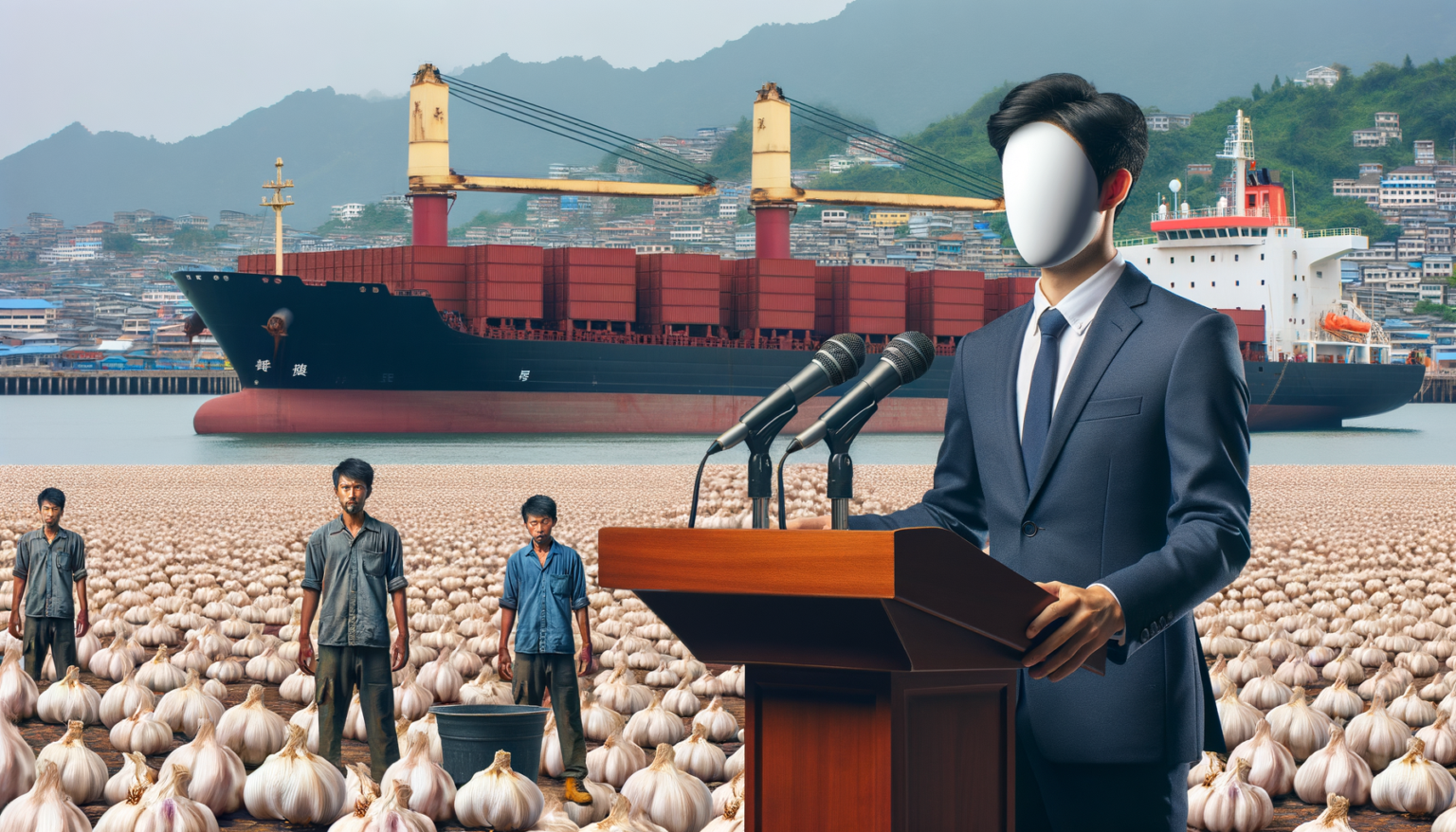Food Safety Concerns
Alleged Unsustainable Practices
Senator Rick Scott has raised concerns about the unsanitary growing conditions in China. He alleges that human feces and forms of sewage are used as fertilizers for garlic crops. This practice is troubling because it can introduce harmful bacteria and viruses to the food.
Rick Scott also mentions that some Chinese garlic is bleached to make it look better. He claims this bleaching can mask contaminants or imperfections, making the garlic look cleaner than it really is.
Public Health Risks
Scott emphasizes that the quality and safety of garlic grown in foreign countries, especially in Communist China, are serious public health concerns. He worries that these practices could harm people who eat the garlic.
However, scientific data on these claims is scarce. A 2017 report from McGill University casts doubt on these allegations. The report says there is no solid evidence that sewage is used as fertilizer in China. It explains that human waste, like animal waste, can be an effective fertilizer if handled correctly. The garlic bulb’s skin can also act as a barrier to contaminants
.https://www.nbcmiami.com/tag/rick-scott/
Scientific Debate
Research from the Swiss agricultural firm Agroscope supports the use of recycled human waste as fertilizer. They found that these fertilizers are as safe and effective as traditional ones. The study showed that using recycled waste yields similar results without the risks of spreading pathogens or harmful chemicals.
For more information on sustainable farming practices, visit this McGill University article.

Labor Concerns
Prison Labor
Reports have surfaced that some garlic in China is peeled by prisoners. This has raised big questions about ethics and laws. Prisoners often work under very harsh conditions, and this practice is common in China, but it is against the law in many other countries. These conditions create serious concerns about worker exploitation and the quality of the garlic.
Forced Labor
Forced labor, including prison labor, is a big problem. It is not allowed in many countries around the world. Many people think it is wrong to make people work without paying them fairly. This adds to the ethical and legal issues surrounding the importation of Chinese garlic. When we buy products made with forced labor, we support these unfair practices.
Ethical Implications
The use of forced labor and prison labor brings up important ethical questions. When workers are treated badly or forced to work, their human rights are not respected. This is a central part of the debate about importing Chinese garlic. It’s not just about the garlic itself, but how it is produced and whether workers are treated fairly.
For more information on labor practices worldwide, visit The Financial Times.

Economic and National Security Implications
Trade Enforcement
Senator Rick Scott has called for an investigation into Chinese garlic imports using the 1962 Trade Expansion Act. He thinks these imports are hurting the U.S. economy. Scott argues that importing cheap garlic from China can lead to job losses in America. He believes it also reduces the money the government gets from taxes and cuts investment in the garlic industry in the U.S.
Economic Impact
Scott worries that Chinese garlic can harm American businesses. Cheap imports can make it harder for American farmers to sell their garlic. This can cause problems like unemployment. Farmers and workers who depend on growing and selling garlic might lose their jobs. Also, the country loses important public money, which impacts services like schools and roads.
National Security Concern
The senator believes food safety is a big part of national security. If the food supply isn’t safe, it can cause many problems. Scott says that allowing too many foreign imports can put the country at risk. He thinks strong U.S. farms and food production help keep the country safe. This way, America won’t have to rely on other countries for something as important as food.
To read more about the 1962 Trade Expansion Act, visit this resource on Trade Enforcement.

